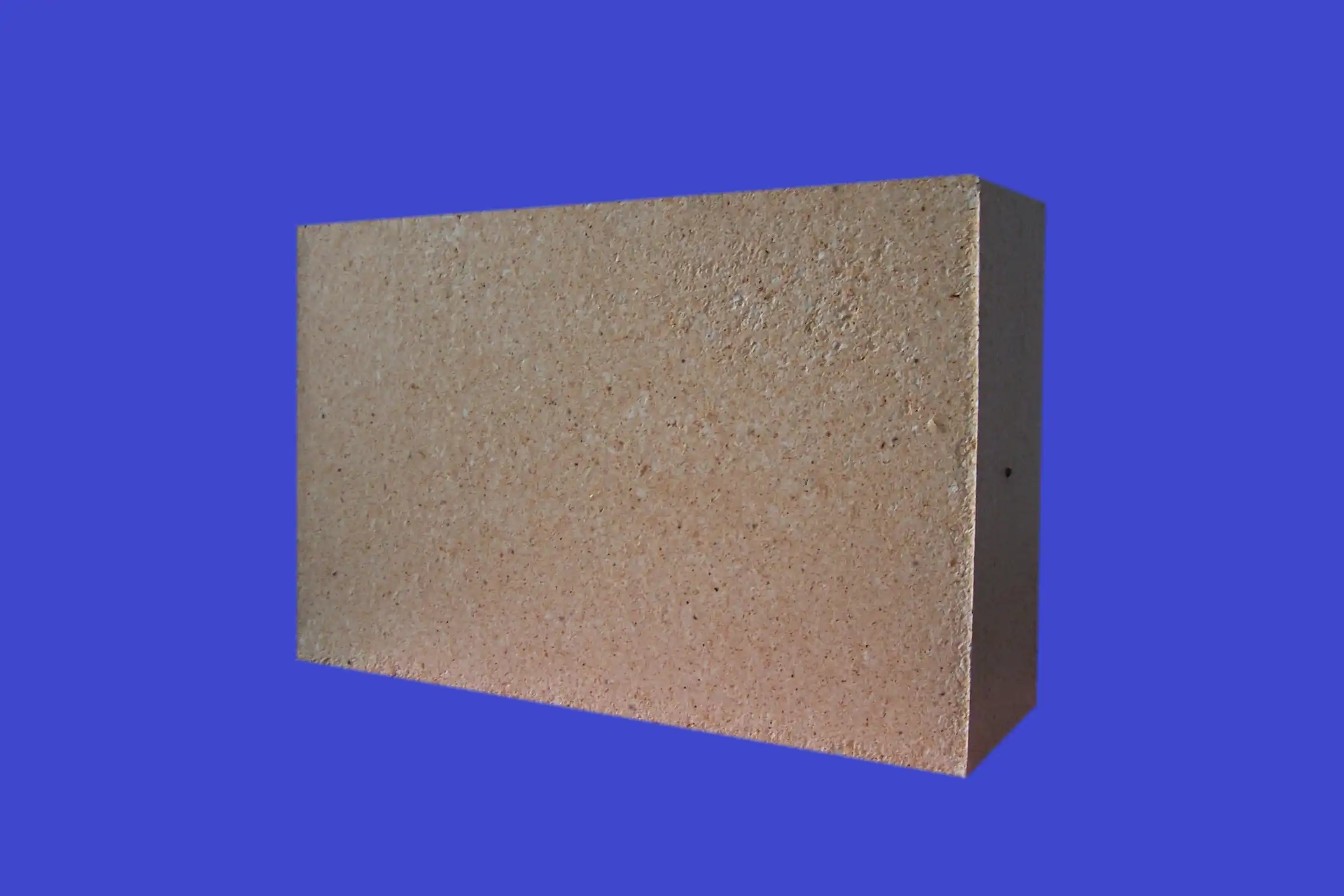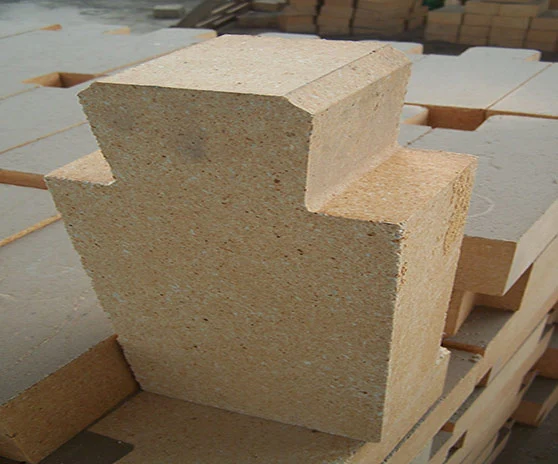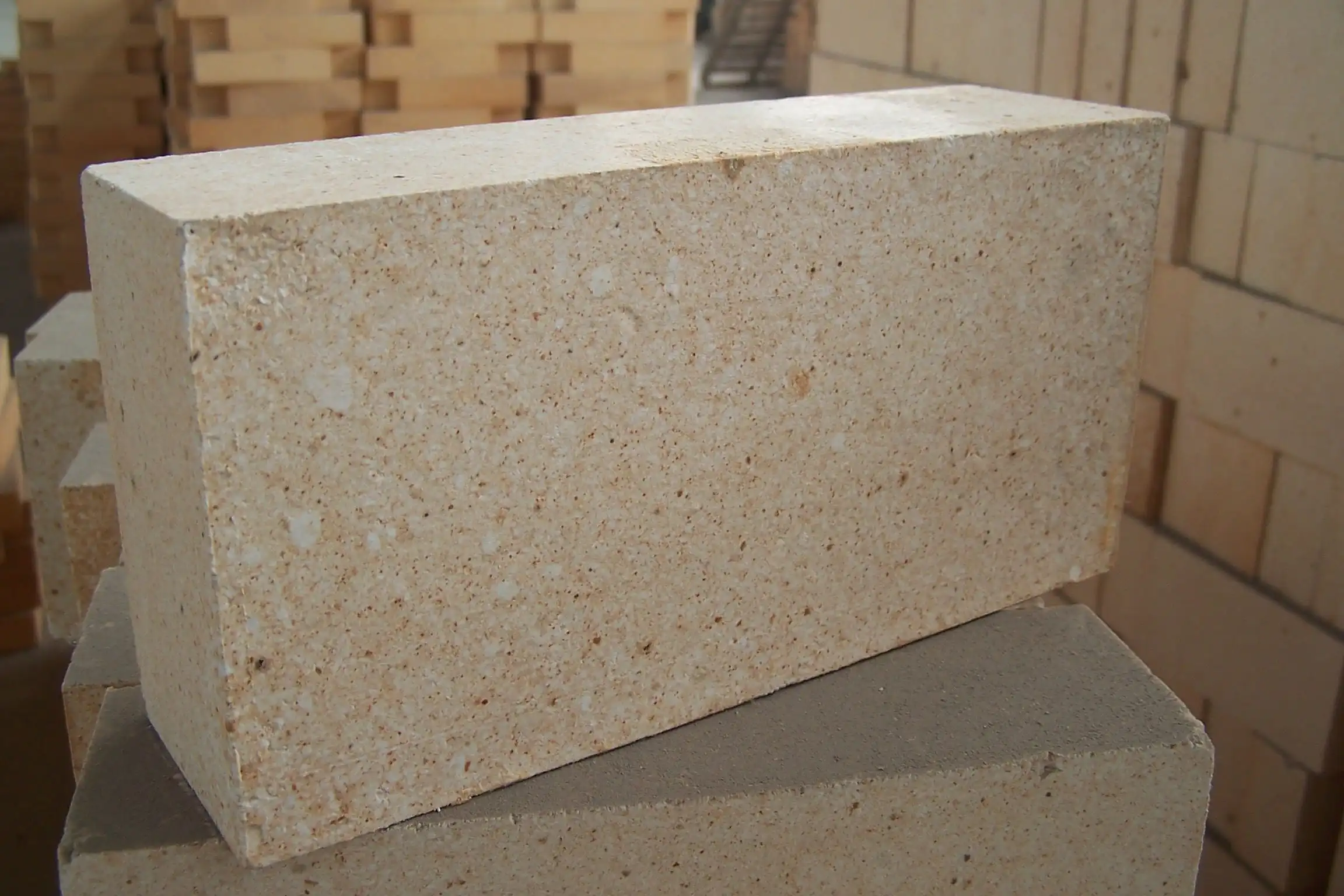

What are the typical applications of fire clay bricks?
2025-04-16 15:46:59
Fire Clay Bricks are among the most versatile and widely-used refractory materials in high-temperature industrial applications worldwide. These specialized bricks are manufactured from high-quality refractory clays containing significant amounts of aluminum oxide and silica, granting them exceptional heat resistance and thermal stability. With temperature resistance cap What are the typical applications of fire clay bricks abilities ranging from 1,730°C to 1,790°C, Fire Clay Bricks serve as the backbone of numerous thermal processes across multiple industries. Their combination of thermal shock resistance, mechanical strength, and cost-effectiveness makes them indispensable in environments where extreme temperatures, chemical reactions, and mechanical stresses are everyday challenges. From blast furnaces in steel mills to the intricate structures of glass manufacturing facilities, Fire Clay Bricks provide the reliable thermal barrier necessary for efficient and safe operations.

Fire Clay Bricks in Metal Production Facilities
The metal production industry relies heavily on Fire Clay Bricks to maintain operational integrity and thermal efficiency. These specialized refractory materials play crucial roles throughout various stages of metal processing.
Blast Furnace Applications
Fire Clay Bricks form an essential component in modern blast furnace construction, particularly in areas exposed to moderate thermal stress. With a refractoriness range of 1,730°C to 1,790°C, these bricks provide reliable performance in the upper shaft and outer lining sections where temperatures fluctuate but remain within manageable ranges. The chemical composition of Fire Clay Bricks, featuring 30-42% Al₂O₃ content and minimal Fe₂O₃ content (less than 2.5%), makes them particularly resistant to alkali attack and thermal fatigue. This resistance is critical in blast furnace operations where rapid temperature changes and chemical reactions are common. The controlled apparent porosity (22-26%) of these bricks provides the ideal balance between insulation properties and structural integrity, allowing for efficient heat management while maintaining the furnace's structural stability. TianYu Refractory's Fire Clay Bricks undergo rigorous quality control processes, ensuring consistent performance even after thousands of operational hours in these demanding environments. Their mechanical properties, including cold crushing strength of 30-50 MPa, enable them to withstand the considerable weight of the furnace burden without compromising safety or performance.
Hot-Blast Stove Linings
Hot-blast stoves present unique challenges for refractory materials due to their cyclical heating and cooling processes. Fire Clay Bricks excel in this application due to their exceptional thermal shock resistance and stable dimensional characteristics. The thermal conductivity range of 1.2-1.6 W/mK makes these bricks particularly suitable for the checkerwork and combustion chamber linings of hot-blast stoves, where efficient heat transfer is essential for preheating the air before it enters the blast furnace. TianYu Refractory's Fire Clay Bricks are manufactured using a precise blend of kaolinite, clay clinker, and refractory clay, optimized specifically for these cyclical temperature applications. The controlled bulk density of 2.2-2.4 g/cm³ provides the ideal balance between insulation properties and heat storage capacity, maximizing the energy efficiency of the stove system. Additionally, the chemical stability of these bricks prevents reactions with the combustion gases, ensuring long-term performance without degradation or contamination. The systematic design approach employed by TianYu Refractory allows for custom-sized Fire Clay Bricks that fit perfectly within the complex geometries of modern hot-blast stove designs, minimizing gaps and potential weak points in the refractory lining.
Iron Ladle and Torpedo Car Linings
The safe transport of molten metal is critical in steel production facilities, and Fire Clay Bricks provide essential thermal protection in iron ladles and torpedo cars. These specialized applications require refractory materials with exceptional resistance to thermal shock, chemical attack, and mechanical stress. TianYu Refractory's Fire Clay Bricks, with their carefully controlled composition and manufacturing process, deliver superior performance in these challenging environments. The low thermal conductivity and high heat capacity of these bricks prevent excessive heat loss during metal transport, maintaining the desired temperature of the molten iron while protecting the steel shell of the vessel. The chemical resistance of Fire Clay Bricks to iron oxide and slag erosion extends the operational life of the lining, reducing maintenance requirements and associated downtime. With a cold crushing strength ranging from 30 to 50 MPa, these bricks withstand the mechanical stresses induced by metal movement during transport and pouring operations. TianYu Refractory's experienced technical team designs custom lining solutions using Fire Clay Bricks in combination with other refractory materials to create optimal performance profiles for specific customer applications. This includes specialized arrangements for impact zones, slag lines, and metal contact areas, ensuring maximum service life and operational safety.

Fire Clay Bricks in Thermal Processing Industries
Beyond metal production, Fire Clay Bricks find extensive application in various thermal processing industries where high temperatures and controlled heating environments are essential for product quality and operational efficiency.
Cement Kiln Applications
In cement manufacturing, Fire Clay Bricks play a vital role in kiln construction, particularly in zones where temperatures remain below 1,400°C. The transition and cooling zones of rotary cement kilns benefit significantly from the thermal properties of these versatile refractory materials. With their excellent thermal shock resistance, Fire Clay Bricks withstand the rapid temperature fluctuations inherent in kiln operation during startup, shutdown, and production adjustments. The controlled porosity of TianYu Refractory's Fire Clay Bricks (22-26%) provides effective thermal insulation while maintaining sufficient mechanical strength to support the rotating kiln structure. This optimal balance helps cement manufacturers achieve energy efficiency goals while ensuring production reliability. The chemical stability of these bricks, particularly their resistance to alkali attack, makes them suitable for zones where volatile compounds condense during the cement manufacturing process. TianYu Refractory engineers work closely with cement producers to design custom Fire Clay Brick solutions that address specific operational challenges, including wear patterns, chemical exposure, and thermal profiles within the kiln system. By integrating Fire Clay Bricks with other specialized refractory materials, TianYu creates comprehensive lining systems that maximize kiln campaign life while minimizing maintenance requirements and associated production losses. The company's extensive experience in cement kiln applications ensures that each Fire Clay Brick installation delivers optimal performance under the specific operational conditions of individual manufacturing facilities.
Glass Furnace Construction
The glass industry relies heavily on Fire Clay Bricks for specific zones within melting furnaces where their thermal and chemical properties provide ideal performance characteristics. The regenerator chambers, which recover waste heat from exhaust gases, benefit particularly from the thermal shock resistance and controlled thermal conductivity (1.2-1.6 W/mK) of these bricks. This optimized thermal profile allows for efficient heat exchange without compromising structural integrity during the cyclical heating and cooling inherent in regenerator operation. TianYu Refractory's Fire Clay Bricks, manufactured from carefully selected raw materials including high-quality kaolinite and refractory clay, demonstrate excellent resistance to alkali vapor attack—a common challenge in glass melting environments. The minimal iron oxide content (<2.5%) prevents discoloration issues in glass production, an essential consideration for manufacturers of clear or lightly tinted glass products. The dimensional stability of these bricks at elevated temperatures ensures that critical passages within the furnace structure maintain proper alignment, optimizing gas flow patterns and heat transfer efficiency throughout the operational campaign. TianYu Refractory's technical team collaborates with glass manufacturers to develop customized Fire Clay Brick specifications that address the unique challenges of different furnace designs and glass formulations. This collaborative approach includes comprehensive material testing under simulated operational conditions to predict performance and identify optimal installation configurations for maximum service life and operational efficiency.
Industrial Boiler Linings
Power generation and industrial process boilers represent another critical application area for Fire Clay Bricks, particularly in combustion chambers and heat recovery sections. The thermal shock resistance of these bricks allows them to withstand the stresses of frequent boiler cycling, while their mechanical strength provides reliable structural support for the refractory lining system. With a bulk density range of 2.2-2.4 g/cm³, TianYu Refractory's Fire Clay Bricks offer an optimal balance between insulation properties and heat storage capacity, contributing to overall boiler efficiency. The chemical stability of these bricks prevents reactions with combustion gases and ash components, maintaining a clean heat transfer surface that maximizes energy utilization while minimizing maintenance requirements. In waste-to-energy applications, where combustion conditions can be particularly challenging due to variable fuel characteristics, Fire Clay Bricks provide reliable performance even when exposed to corrosive combustion products and fluctuating temperature profiles. TianYu Refractory's engineering team develops specialized installation designs that address the unique challenges of different boiler configurations, including considerations for expansion joints, anchoring systems, and interface zones between different refractory materials. This comprehensive approach ensures that Fire Clay Brick installations in industrial boilers deliver maximum operational reliability while minimizing maintenance requirements and associated downtime. The company's experience with diverse boiler designs and operational conditions allows for the development of optimized refractory solutions that address specific customer challenges while maximizing the service life of the refractory lining system.
Specialized Applications of Fire Clay Bricks
Beyond traditional industrial settings, Fire Clay Bricks demonstrate remarkable versatility in specialized applications that benefit from their unique combination of thermal, mechanical, and chemical properties.
Petrochemical Process Equipment
In the petrochemical industry, Fire Clay Bricks provide essential thermal protection and chemical resistance in various processing units, including catalytic crackers, reformers, and thermal oxidizers. The controlled apparent porosity (22-26%) of these bricks creates an effective thermal barrier that protects metal equipment shells from excessive heat while maintaining operational temperatures within optimal ranges for reaction efficiency. TianYu Refractory's Fire Clay Bricks, with their aluminum oxide content ranging from 30% to 42%, demonstrate excellent resistance to the catalysts, hydrocarbons, and steam environments commonly encountered in petrochemical processes. This chemical stability extends refractory lining life and prevents contamination of process streams, ensuring product quality and operational reliability. The mechanical strength of these bricks, with cold crushing strength values of 30-50 MPa, allows them to withstand the mechanical stresses induced by thermal cycling and equipment vibration without developing cracks or failure points that could compromise the integrity of the refractory lining. TianYu Refractory's technical team works closely with petrochemical engineers to develop customized Fire Clay Brick specifications and installation designs that address the specific challenges of different process units, including considerations for thermal expansion, chemical exposure profiles, and mechanical stress patterns. This collaborative approach ensures optimal performance and maximum service life for refractory linings in these critical applications. Additionally, the company's quality control processes, including comprehensive material testing and production monitoring, ensure that each Fire Clay Brick meets or exceeds the stringent requirements of petrochemical industry standards for safety and reliability.
Incineration Systems
Waste incineration facilities present some of the most challenging environments for refractory materials due to the combination of high temperatures, aggressive chemical attack, and thermal cycling. Fire Clay Bricks, with their excellent thermal shock resistance and chemical stability, provide reliable performance in secondary combustion chambers and heat recovery sections of these systems. The controlled chemical composition of TianYu Refractory's Fire Clay Bricks, particularly their minimal iron oxide content (<2.5%), prevents reactions with chlorides and other corrosive compounds commonly found in incineration environments. This chemical resistance extends refractory lining life and maintains the integrity of the thermal barrier, protecting the metal structure of the incineration system. The thermal conductivity range of 1.2-1.6 W/mK provides effective insulation while allowing sufficient heat transfer for efficient waste combustion and energy recovery. TianYu Refractory's engineering team develops specialized installation designs for incineration systems, including considerations for expansion joints, anchoring systems, and wear-resistant facings in high-impact zones. These comprehensive designs ensure that Fire Clay Brick installations in incineration facilities deliver maximum operational reliability while minimizing maintenance requirements and associated downtime. The company's experience with diverse waste streams and incineration technologies allows for the development of optimized refractory solutions that address specific customer challenges while maximizing service life under these demanding conditions. Furthermore, TianYu Refractory's technical support team provides ongoing consulting services to help incineration facility operators optimize operating conditions to extend refractory lining life while maintaining efficient waste processing.
Laboratory and Research Furnaces
Precision and reliability are paramount in laboratory and research environments, where Fire Clay Bricks provide essential thermal protection and stability in experimental furnaces and thermal testing equipment. The consistent thermal properties and dimensional stability of these bricks ensure reproducible experimental conditions, a critical requirement for scientific research and materials development work. TianYu Refractory's Fire Clay Bricks, manufactured with tightly controlled specifications and rigorous quality testing, provide the reliability necessary for these demanding applications. The refractoriness range of 1,730°C to 1,790°C allows these bricks to withstand the high temperatures required for materials testing and experimental processes while maintaining their structural integrity and insulation properties. The controlled porosity and permeability characteristics prevent contamination of test specimens by gases or other materials, ensuring the validity of experimental results. The mechanical strength of these bricks, with cold crushing strength values of 30-50 MPa, allows them to maintain precise geometries even after repeated thermal cycling, providing consistent test conditions throughout extended research programs. TianYu Refractory works closely with laboratory equipment manufacturers and research institutions to develop customized Fire Clay Brick solutions that meet specific experimental requirements, including considerations for temperature uniformity, heating rates, and chemical compatibility with test materials. This collaborative approach ensures that laboratory furnaces and thermal testing equipment deliver the precise and reliable performance necessary for advanced research and development work. The company's comprehensive quality control processes, including material testing and production monitoring, guarantee that each Fire Clay Brick meets the exacting standards required for these precision applications.

Conclusion
Fire Clay Bricks represent a cornerstone technology in high-temperature industrial applications, offering an exceptional combination of thermal resistance, mechanical strength, and chemical stability. From blast furnaces and hot-blast stoves to cement kilns and glass furnaces, these versatile refractory materials enable efficient and reliable operations across numerous industries. With 38 years of specialized experience in the refractory industry, TianYu Refractory continues to lead innovation in Fire Clay Brick technology, delivering custom solutions that address specific operational challenges while maximizing service life and performance reliability.
Are you facing challenges with your high-temperature applications? Our team of refractory experts is ready to help you find the optimal Fire Clay Brick solution for your specific requirements. With our comprehensive "design-construction-maintenance" lifecycle services and 24/7 technical support, we ensure your operations run smoothly and efficiently. Our ISO-certified quality management system and in-house R&D center with 14 dedicated material scientists guarantee products that consistently exceed industry standards. Contact us today at baiqiying@tianyunc.com to discuss how our Fire Clay Bricks can enhance the performance and longevity of your thermal processing equipment.
References
1. Zhang, L., & Wang, H. (2023). "Advancements in Fire Clay Brick Technology for Modern Blast Furnace Applications." Journal of Refractory Materials, 56(3), 215-230.
2. Thompson, R.K., & Anderson, J.L. (2022). "Thermal Performance Analysis of Fire Clay Refractories in Industrial Applications." International Journal of Ceramic Engineering, 41(2), 78-92.
3. Chen, X., et al. (2023). "Comparative Study of Fire Clay Brick Linings in Cement Kiln Operations." Cement and Concrete Research, 145, 106712.
4. Martinez, S., & Johnson, P. (2022). "Longevity Enhancement of Fire Clay Refractories in Glass Melting Environments." Glass Technology: European Journal of Glass Science and Technology Part A, 63(5), 175-189.
5. Patel, V., & Rodriguez, C. (2023). "Analysis of Fire Clay Brick Performance in Waste Incineration Systems." Waste Management & Research, 41(7), 1028-1042.
6. Kim, H., & Suzuki, T. (2022). "Advancements in Laboratory-Scale Testing of Fire Clay Refractories for Industrial Applications." Journal of Materials Engineering and Performance, 31(8), 6542-6557.
YOU MAY LIKE












